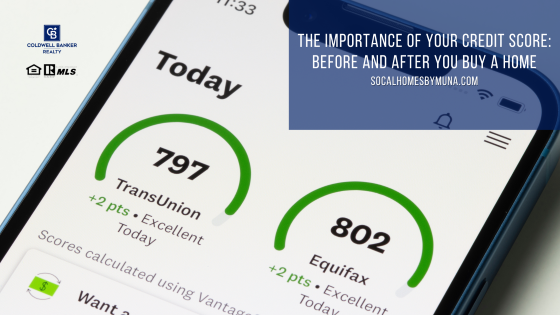Lenders look at several things when determining whether or not to approve you for a home loan. Income. Debt. Debt-to-income ratio. Down payment. And, of course, your credit score. Did you know, though, that you should not let your credit slip once you sign those closing documents?
The Importance of Your Credit Score
Before You Buy a Home
A good credit score shows lenders that you handle debt responsibly. With a higher score comes better interest rates, too. With rates well above the 7% mark, you want to save wherever possible. While some programs allow for a 580 FICO score, that also means paying a much higher interest rate. Besides, conventional loans require a minimum of 620, with other loans requiring at least a 640 score for approval.
After You Buy a Home
I know what you’re thinking. “But Muna. Once I am an official homeowner, why can’t I be less vigilant about my credit score?” Well, several reasons. First of all, employers sometimes look at your credit score when considering you for a job. They equate good credit with responsibility. Second, saving money on your credit cards. Credit card companies offer better rates for those with better scores. Third, new home, new furniture, right? Well, that may mean borrowing money to pay for it. Again, a better FICO score means a better interest rate. And that translates into saving money.
Next, what about when interest rates start to fall? It may not seem possible now, but there is a good chance that interest rates will come down again in the future. At that time, you may want to refinance at a lower rate in order to save some money on your mortgage. If you let your score take a hit, that may not be possible. Finally, what about when you decide to sell your current home and look for something else? You’re going to need that great score to get the best rates then, too. It’s much harder to bring your score up to a great level if you let it tank first.
Muna Dionne, your Inland Empire specialist with Coldwell Banker Realty


 Facebook
Facebook
 X
X
 Pinterest
Pinterest
 Copy Link
Copy Link
